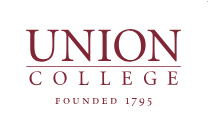
Q: Are OER peer reviewed?
A: Sometimes, not always. OER are compatible with all forms of peer review, from the most traditional to the most experimental. That said, many OER are not peer reviewed. But many are, and their evaluation can take the form of pre-publication double-blind peer review, pre-publication open peer review, and post-publication review.
Q: Are OER only digital?
A: No! While OER often take digital form to facilitate their access and sharing via the web, OER can be in any medium, whether it be digital or physical, and digital OER texts can be printed for a small cost for those who would prefer to read in print. This can be done by the user, who will then have to cover the costs of printing a personal copy. Alternatively, printing physical copies of digital texts can be done by campus printing services, and these physical copies can then be sold at cost or with standard university bookstore markup by the campus bookstore.
Q: Why should I use educational resources that are openly licensed? I already copy and distribute educational materials for my students in the form of scanned readings and course packs.
A: You should use openly licensed educational resources because they do not violate copyright, and by copying and distributing copyrighted educational materials, you may very well be violating copyright! Even invoking Fair Use may not protect you in this case from copyright infringement, particularly if you are copying all or significant portions of the educational resources. Fair use is only "more likely" "if the use employs only a small amount or unsubstantial portion of copyrighted material"; to fall under fair use, all four criteria must be met. For more information, see the "Fair Use" tab in our copyright guide.
While it is unlikely that you will be caught, you are still violating the right of the creator to profit from her or his creation. OER enables free and legal access and is thus a better option than free but illegal access.
Q: May the OER that I am creating include copyrighted material from elsewhere?
A: Yes, but there are rules to follow. See the Creative Commons Wiki entry, "Marking/Creators/Marking third party content" for more information.